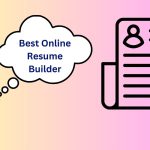Navigating the Journey of Entrepreneurship: A First-Time Founder’s Timeline
As I embark on my academic journey at Tetr College of Business, I am excited to dive into a curriculum that emphasizes real-world entrepreneurial experiences. Each term, we will be tasked with launching an actual venture, which I see as a fantastic opportunity, especially for someone like me who is stepping into the world of entrepreneurship for the first time. However, I am eager to develop a clear understanding of the time commitment and logistical challenges involved.
Setting the Stage for a Viable Venture
As I prepare for this exciting chapter, I have a few pressing questions that I believe could benefit from the insights of seasoned entrepreneurs. Here are some considerations I am musing over:
1. Realistic Timelines for Development and Validation
I am curious about what a typical timeline looks like for turning an idea into a Minimum Viable Product (MVP) and securing initial market validation. For a first-time founder balancing other obligations—such as studies and possibly a part-time job—how long should one realistically expect each stage of this process to take? Understanding this can help set attainable goals.
2. Identifying Common Pitfalls
Every founder faces hurdles, and I would love to hear from those who have been through the trenches. What unexpected delays or time-consuming challenges did you encounter during your startup journey? Gaining insight into these common pitfalls could help in strategizing how to avoid or mitigate them in my own venture.
3. Strategizing for Balance and Success
Lastly, I seek advice on how to launch a venture while managing the myriad responsibilities life throws our way. How did you strike a balance between building your business and maintaining your well-being? Any tips on prioritizing tasks, managing stress, or even delegating responsibilities would be invaluable as I prepare to navigate this challenging yet rewarding endeavor.
Conclusion: Preparing for the Journey Ahead
Embarking on this entrepreneurial journey is both thrilling and daunting, particularly for a first-time founder like myself. By learning from the experiences of seasoned entrepreneurs, I hope to set realistic expectations for my timeline and develop strategies that will propel my venture forward without overwhelming my other commitments.
If you have insights or experiences to share, please join the conversation in the comments below. Your feedback could greatly aid those of us stepping into the entrepreneurial landscape for the first time. Here’s to a journey full of learning and growth!










One Comment
Thank you for sharing your thoughtful reflections and questions—these are truly vital considerations for any first-time founder balancing multiple commitments. From my experience, a realistic timeline to develop an MVP can vary widely depending on the complexity of the product and the resources available, but generally, 3 to 6 months is a common starting point for early-stage validation when working part-time. It’s important to prioritize core functionalities that address the most pressing problem, allowing you to get feedback sooner and iterate quickly, rather than aiming for perfection upfront.
Regarding pitfalls, unexpected delays often stem from scope creep, underestimating technical challenges, or difficulties in reaching your target audience. Building a lean, flexible plan and maintaining active customer engagement early on can help mitigate these issues.
Balancing entrepreneurship with other responsibilities requires deliberate planning. Setting clear boundaries, using time management tools, and possibly delegating or automating tasks can make a significant difference. Remember to prioritize your mental well-being—burnout can severely hinder your productivity and creativity. Finding a support network, whether peers or mentors, can also provide encouragement and perspective along the way.
Ultimately, patience and persistence are key. Each step, even setbacks, provides invaluable learning opportunities that will strengthen your venture and your growth as an entrepreneur. Wishing you an exciting and balanced journey ahead!